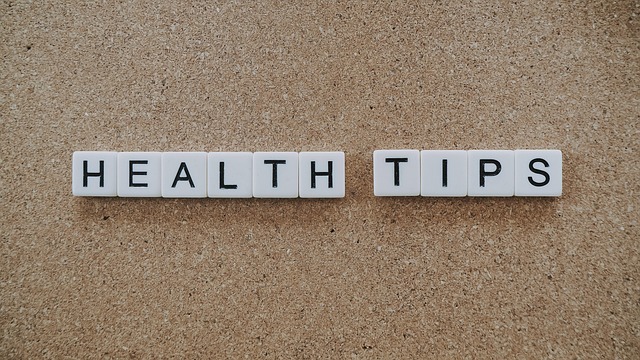Embracing a healthier lifestyle doesn’t have to involve drastic changes or complicated routines. In fact, small, simple habits can be just as effective in improving our physical and mental well-being. Adopting healthy habits is a gradual process that requires persistence, consistency, and patience. Looking to boost your energy, enhance your mood, or prevent chronic diseases? Then, there are many simple habits you can incorporate into your daily life. In this article, we will discuss 10 easy-to-adopt habits that can help you achieve a happier and healthier lifestyle. By making small changes to your daily routine, you can take a significant step towards achieving your health goals.
10 Simple Habits to Adopt for a Healthier Lifestyle
- Habit #1: Drink plenty of water
- Habit #2: Get enough sleep
- Habit #3: Eat a balanced and nutritious diet
- Habit #4: Exercise regularly
- Habit #5: Take breaks from technology
- Habit #6: Practise mindfulness and relaxation techniques
- Habit #7: Spend time outdoors
- Habit #8: Practise gratitude and positivity
- Habit #9: Maintain social connections
- Habit #10: Pursue hobbies and interests
Habit #1: Drink Plenty of Water

Drinking plenty of water is crucial for maintaining good health and well-being. Water is essential for many of the body’s functions, including regulating body temperature, carrying nutrients and oxygen to cells, removing waste products, and lubricating joints.
Dehydration can lead to a range of health problems, including fatigue, headaches, constipation, and kidney stones. Drinking enough water can also help prevent or manage chronic conditions such as hypertension, diabetes, and heart disease.
In addition to the physical benefits, staying hydrated can also improve cognitive function, mood, and overall mental well-being. Dehydration can lead to cognitive impairment, poor concentration, and mood disturbances. Drinking water regularly can help keep the mind sharp and enhance mood.
Overall, drinking plenty of water is an easy and effective way to maintain good health and prevent illness. It’s recommended that adults drink at least 8 cups (64 ounces) of water per day. However, this will vary depending on individual needs and activity level.
Habit #2: Get Enough Sleep

Getting enough sleep is crucial for maintaining good health and well-being. Sleep is essential for many of the body’s functions. We need it for repairing and restoring tissues, consolidating memories, and regulating hormones that control appetite and metabolism.
Lack of sleep or poor quality sleep can lead to a range of health problems. These may include fatigue, irritability, weakened immune system. Also, lack of sleep can increase risk of chronic conditions such as obesity, diabetes, and heart disease. It can also affect cognitive function, mood, and overall mental well-being. Chronic sleep deprivation has been linked to depression, anxiety, and other mood disorders.
On the other hand, getting enough sleep has numerous benefits. These can include improved cognitive function, better mood, and increased energy levels. It can also enhance physical performance and reduce the risk of accidents and injuries.
Overall, getting enough sleep is a vital part of a healthier lifestyle. The amount of sleep required varies by individual. However, most adults need between 7 and 9 hours of sleep per night. Establishing a regular sleep schedule, avoiding caffeine and alcohol before bedtime, and creating a relaxing sleep environment can all help improve sleep quality and duration.
Habit #3: Eat a Balanced and Nutritious Diet

Eating a balanced and nutritious diet is essential for maintaining good health and well-being. A healthy diet provides the body with the nutrients it needs to function properly, including carbohydrates, proteins, healthy fats, vitamins, and minerals.
A poor diet lacking in essential nutrients can lead to a range of health problems, including obesity, heart disease, type 2 diabetes, and some cancers. It can also weaken the immune system, making the body more susceptible to infections and other illnesses.
On the other hand, eating a balanced and nutritious diet can have numerous health benefits, including maintaining a healthy weight, improving heart health, reducing the risk of chronic diseases, and improving overall mood and mental well-being.
To eat a balanced and nutritious diet, it’s important to focus on whole, minimally processed foods such as fruits, vegetables, whole grains, lean proteins, and healthy fats. Limiting consumption of highly processed foods, added sugars, and unhealthy fats is also essential.
Overall, a balanced and nutritious diet is an essential part of a healthier lifestyle. By making small changes to your diet and incorporating more healthy foods, you can improve your health and well-being and reduce the risk of chronic diseases.
Habit #4: Exercise Regularly

Regular exercise is essential for maintaining good health and well-being. Physical activity can improve cardiovascular health, increase muscle strength and flexibility, and reduce the risk of chronic diseases such as heart disease, stroke, and diabetes.
Regular exercise can also have a positive impact on mental health, reducing symptoms of depression and anxiety, improving mood and self-esteem, and enhancing cognitive function. Exercise releases endorphins, which are natural mood-boosting chemicals that can help reduce stress and anxiety.
Additionally, regular exercise can help maintain a healthy weight and body composition. It can increase metabolism, which helps the body burn more calories, and reduce the risk of obesity and associated health problems.
To reap the benefits of exercise, it’s important to engage in regular physical activity. This can include activities such as walking, jogging, cycling, swimming, strength training, and yoga. The American Heart Association recommends at least 150 minutes of moderate-intensity aerobic exercise per week or 75 minutes of vigorous-intensity aerobic exercise per week, along with muscle-strengthening exercises at least two days per week.
Overall, regular exercise is an essential part of a healthier lifestyle. By incorporating physical activity into your daily routine, you can improve your physical and mental well-being and reduce the risk of chronic diseases.
Habit #5: Take Breaks from Technology

Taking breaks from technology is important for maintaining good mental and physical health. While technology has many benefits, including improving communication and access to information, it can also have negative effects on our well-being.
Excessive use of technology, especially for extended periods of time, can lead to eye strain, headaches, neck and back pain, and disrupted sleep patterns. It can also have negative effects on mental health, leading to symptoms of anxiety, depression, and social isolation.
Taking breaks from technology can help reduce these negative effects and promote a healthier balance between technology use and other activities. It can also help improve focus and productivity, as well as encourage more meaningful social interactions and physical activity.
To take breaks from technology, consider setting aside specific times of the day or week to disconnect, such as during meals or before bedtime. Engaging in other activities such as exercise, hobbies, or socialising can also help reduce reliance on technology and promote a healthier lifestyle.
Overall, taking breaks from technology is an important part of maintaining good mental and physical health. By finding a healthy balance between technology use and other activities, you can improve your overall well-being and reduce the negative effects of excessive technology use.
Habit #6: Practise Mindfulness and Relaxation Techniques

Practising mindfulness and relaxation techniques is important for maintaining good mental and physical health. Mindfulness involves focusing on the present moment and becoming more aware of your thoughts, feelings, and surroundings, while relaxation techniques can help reduce stress and promote a sense of calm.
Chronic stress can have negative effects on both mental and physical health, including increasing the risk of anxiety, depression, and other mood disorders, as well as contributing to high blood pressure, heart disease, and other chronic health conditions.
Practising mindfulness and relaxation techniques can help reduce stress levels and promote a sense of calm and relaxation. Mindfulness practices such as meditation, yoga, and deep breathing exercises can help reduce the physiological effects of stress, including reducing heart rate, blood pressure, and cortisol levels.
Additionally, relaxation techniques such as progressive muscle relaxation, guided imagery, and biofeedback can help reduce muscle tension and promote a sense of calm and relaxation, which can further help reduce stress levels.
Overall, practising mindfulness and relaxation techniques is an important part of maintaining good mental and physical health. By incorporating these practices into your daily routine, you can reduce stress levels, promote a sense of calm and relaxation, and improve overall well-being.
Habit #7: Spend Time Outdoors

Spending time outdoors is important for maintaining good physical and mental health. Being in nature can have numerous benefits for the mind and body, including reducing stress levels, improving mood, and increasing physical activity.
Spending time outdoors can help reduce stress levels and improve mood. Studies have shown that spending time in nature can reduce levels of the stress hormone cortisol, which can contribute to feelings of anxiety and depression. Additionally, being in nature can have a calming effect on the mind, which can help improve overall mood and well-being.
Spending time outdoors can also promote physical activity, which is important for maintaining good health. Outdoor activities such as hiking, biking, and swimming can provide a fun and enjoyable way to stay active and promote cardiovascular health.
Additionally, spending time outdoors can provide opportunities for social interaction and connection, which is important for overall well-being. Outdoor activities such as picnics, sports, and other social gatherings can provide opportunities to connect with friends and family, which can help improve overall mood and mental health.
Overall, spending time outdoors is an important part of maintaining good physical and mental health. By incorporating outdoor activities into your daily routine, you can reduce stress levels, improve mood, increase physical activity, and promote social connection and overall well-being.
Habit #8: Practise Gratitude and Positivity

Practising gratitude and positivity is important for maintaining good mental health and overall well-being. Gratitude involves focusing on the positive aspects of life and being thankful for what you have, while positivity involves maintaining a positive outlook on life and focusing on the good things.
Practising gratitude and positivity can help improve mood and reduce symptoms of anxiety and depression. Research has shown that people who regularly practise gratitude have lower levels of depression and are better able to cope with stress and adversity.
Additionally, maintaining a positive outlook on life can help reduce stress levels and promote a sense of optimism and resilience. People who are more positive tend to have better physical health, stronger immune systems, and are more likely to engage in healthy behaviours.
Practising gratitude and positivity can also improve relationships with others, as it promotes a sense of empathy and understanding. People who regularly practise gratitude tend to have stronger and more fulfilling relationships with others.
Overall, practising gratitude and positivity is an important part of maintaining good mental health and overall well-being. By focusing on the positive aspects of life and maintaining a positive outlook, you can reduce stress levels, improve mood, and promote resilience and empathy in your relationships with others.
Habit #9: Maintain Social Connections

Maintaining social connections is important for maintaining good mental and physical health. Social connections involve relationships with others, including friends, family, and community members.
Having strong social connections can help reduce feelings of loneliness and social isolation, which can contribute to poor mental and physical health. Social isolation has been linked to an increased risk of depression, anxiety, and other mental health conditions, as well as increased risk of chronic diseases such as heart disease and stroke.
Additionally, maintaining social connections can provide emotional support during difficult times, which can help reduce stress levels and promote a sense of well-being. Social connections can also provide opportunities for fun and enjoyable activities, which can promote a sense of happiness and fulfilment.
Maintaining social connections can also provide opportunities for personal growth and learning. Social connections can provide opportunities for new experiences and exposure to different perspectives and ideas, which can promote personal growth and development.
Overall, maintaining social connections is an important part of maintaining good mental and physical health. By building and maintaining strong relationships with others, you can reduce feelings of loneliness and social isolation, promote emotional support and personal growth, and improve overall well-being.
Habit #10: Pursue Hobbies and Interests

Pursuing hobbies and interests is important for maintaining good mental health and overall well-being. Hobbies and interests provide opportunities for personal growth and development, as well as opportunities for relaxation and stress relief.
Engaging in hobbies and interests can promote a sense of purpose and fulfilment, which is important for overall well-being. Hobbies and interests can provide opportunities for personal growth and development, as well as opportunities to learn new skills and acquire knowledge.
Additionally, pursuing hobbies and interests can provide opportunities for relaxation and stress relief, which is important for maintaining good mental and physical health. Hobbies and interests can provide a sense of enjoyment and pleasure, which can help reduce feelings of stress and promote a sense of well-being.
Pursuing hobbies and interests can also promote social connection and interaction with others, which is important for maintaining good mental and physical health. Participating in group activities or hobbies can provide opportunities to connect with others who share similar interests and passions, which can promote a sense of community and belonging.
Overall, pursuing hobbies and interests is an important part of maintaining good mental and physical health. By engaging in activities that provide a sense of purpose, fulfilment, relaxation, and social connection, you can improve overall well-being and promote a sense of happiness and fulfilment in your life.
Tips for Incorporating the 10 Habits into Daily Life

Here are some tips for incorporating the 10 habits of a healthier lifestyle into daily life:
- Drinking plenty of water. Keep a reusable water bottle with you at all times. Aim to drink at least 8-10 glasses of water per day.
- Getting enough slee. Set a regular sleep schedule and stick to it. Avoid caffeine and electronics before bedtime, and create a relaxing bedtime routine.
- Eating a balanced and nutritious diet. Plan healthy meals in advance. Incorporate a variety of fruits and vegetables, and choose whole grains and lean protein sources.
- Exercising regularly. Find physical activities you enjoy. Schedule regular exercise into your day, and gradually increase the intensity and duration of your workouts.
- Taking breaks from technology. Set designated times to check your phone and social media. Turn off electronics at least an hour before bedtime, and incorporate activities that don’t involve technology into your day.
- Practising mindfulness and relaxation techniques. Take breaks throughout the day to practise deep breathing, meditation, or other relaxation techniques. Incorporate activities that promote relaxation and stress relief into your daily routine.
- Spending time outdoors. Take breaks throughout the day to go for a walk, hike, or bike ride. Plan outdoor activities on the weekends.
- Practising gratitude and positivity. Make a daily gratitude list. Focus on the positive aspects of your day, and surround yourself with positive people and influences.
- Maintaining social connections .Schedule regular social activities with friends and family. Join groups or clubs with similar interests, and volunteer in your community.
- Pursuing hobbies and interests. Set aside time each day or week to engage in hobbies or interests. Join groups or clubs with similar interests, and try new activities to expand your horizons.
Remember, it’s important to start small and gradually incorporate these habits into your daily routine. Focus on one or two habits at a time, and be patient with yourself as you make changes. With time and consistency, these habits can become an integral part of a more fulfilling and healthier lifestyle.
Wrapping Up a Healthier Lifestyle
In conclusion, adopting simple habits can have a significant impact on your overall health and well-being. Incorporating these ten habits, such as drinking plenty of water, getting enough sleep, etc can help you live a happier, healthier, and more fulfilling life.
It may seem daunting to adopt all of these habits at once, so don’t! Start small and gradually incorporate these changes into your daily routine. It will soon make a big difference over time. Focus on what you can control, such as your daily habits. In this wau, you will positively impact your physical, mental, and emotional health.
Remember, adopting a healthier lifestyle is not about perfection, but rather progress. So, take one step at a time, be patient with yourself, and celebrate your successes along the way. Incorporate these ten simple habits into your daily routine, and create a healthier, happier, and more fulfilling life for yourself.
Want to read more posts that will help you live your best life? Then look no further than our blog! You will find a plethora of ideas. Nutritional needs in teenagers, easing anxiety through meditation, maintaining a healthy mindset, an many more, all in one place!
Disclaimer: The information provided on Healthy Lifestyles for All is intended for general educational purposes only and should not be considered as medical advice. Please consult with your GP or other health professional before making any significant changes to your diet, exercise routine, or any other aspect of your lifestyle. We are not responsible for any adverse effects or consequences resulting from the use of the information provided on our blog.
Comments: I hope you enjoyed reading this post as much as I enjoyed writing it. If you liked it, please leave a comment. If you didn’t like it, disagree with something I have written (I’m okay with that), or think I got something wrong (that’s okay too), please leave a comment as well. We only truly learn from our mistakes, so I am happy to have mine pointed out.
Affiliate Links: Please also note that I may make a small amount of money if you buy one of the products I recommend in any of my blog posts. Rest assured that I have done my own due diligence, and only recommend products that have been tried and tested, and have extremely good feedback. Additionally, many of the products I recommend have 30 or 60-day money-back guarantees, so you can buy in the confidence that if a particular product is not right for you, you can get a refund.

